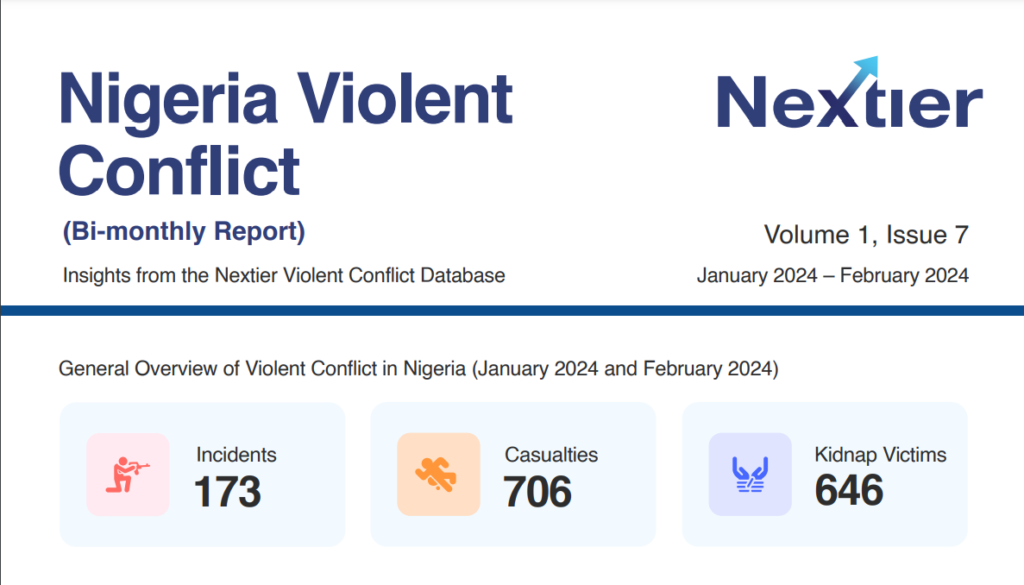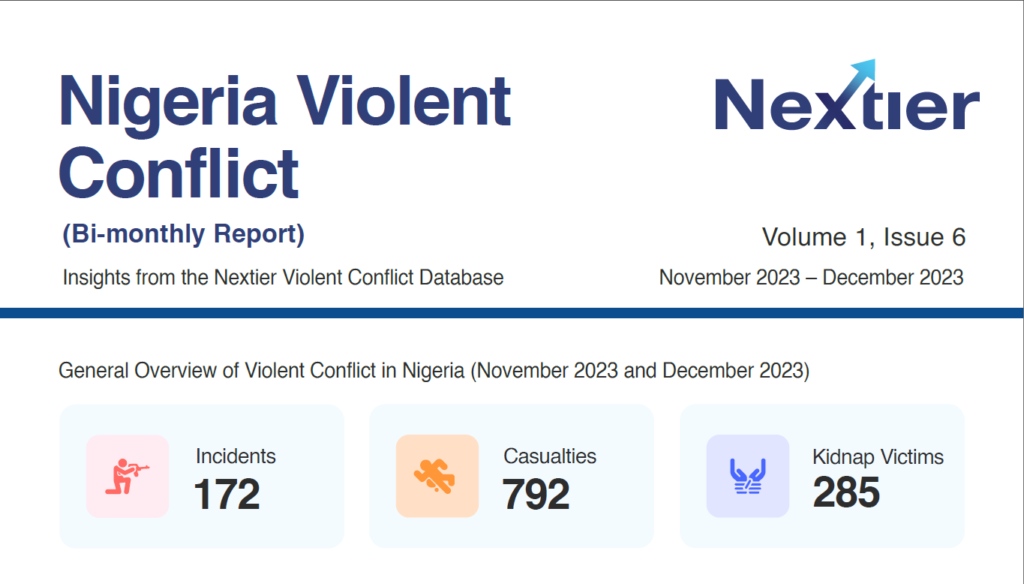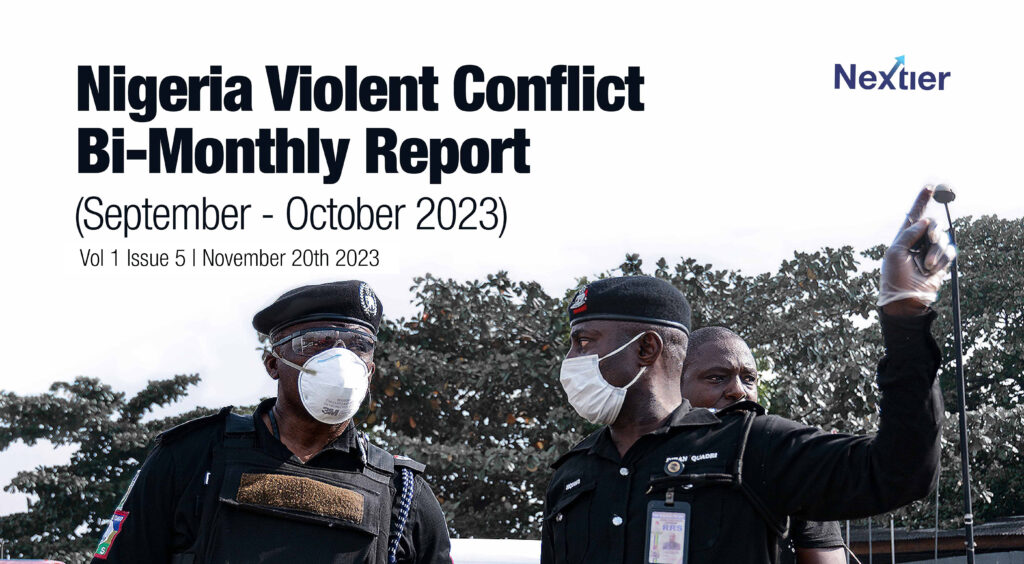For over two decades, insecurity in Nigeria has grown in scale and sophistication, posing an extraordinary risk to valued assets such as lives, investments, and the state’s territorial integrity. Gunmen attacks, farmer-herder conflicts, banditry, thuggery and kidnapping are among the numerous security travails in Nigeria. These diverse and complex security challenges reflect the country’s social and economic inequalities and governance
shortcomings, contributing to unrest in the country. These security challenges have continued into 2023. In the previous Nigeria Violent Conflict Bi-monthly report, prevalent crisis types include banditry, thuggery and gunmen attacks. Current data from the Nextier Violent Conflict Database shows that the pattern of violence has continued in this manner. Between March and April 2023, banditry was predominant in the Northwest, gunmen attacks in the Northcentral and thuggery in the Southwest and Southeast.
During the review period, the 36 states of Nigeria held their gubernatorial and state assembly elections, with records of isolated incidents of armed conflict and electoral violence. The devasting effects of violent conflict make the challenge a top priority for the incoming national and sub-national governments. Also, the latest outbreak of a civil war in Sudan is an
upsetting event that may negatively impact the Sahel, especially Nigeria. Scholars argue that the war, which has claimed about 400 lives, could have a domino effect across the troubled Lake Chad Basin and the Sahel. Already, many Nigerians are stranded due to the humanitarian burden of the war, with the Nigerian government making urgent efforts to rescue its citizens.
Click here to download report.



